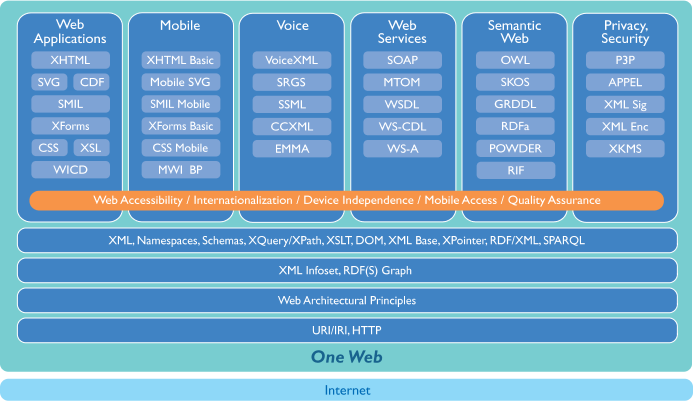eGovernment at W3C
José M. Alonso <[email protected]>
eGovernment Lead, W3C/CTIC

José M. Alonso <[email protected]>
eGovernment Lead, W3C/CTIC


- "...the term “standard” [refers] to a document, established and approved by a national, EU or International recognized body (CEN, CENELEC, ETSI, ISO,…) whereas the term “technical specification” covers also specifications issued by stakeholder fora or industry consortia such as W3C, IETF, …"
- "Public Administrations, especially in the PEGS context, need common standards or technical specifications to implement the interoperability of their processes, organisations and systems;"
from EIF 2.0 consultation document (chapter 8)
- "Openness of standards or technical specifications is important for public administrations because of its relationship with interoperability, freedom and choice:
- openness lowers barriers to market entry, thereby widening the field to competition - leading to more choice, better quality and lower prices;
- openness spurs innovation by allowing more talent to contribute ideas and advance the state-of-the-art;
- openness strengthens the position of consumers vis-à-vis their suppliers;
- openness enables consumers to combine off-the-shelf products with custom-built products and turn-key systems;
- openness facilitates interoperability through transparency;
- openness enhances security through transparency;
- openness ensure access to information and services, now and in the future, as it avoids lock-in situations, making such access dependent from specific products;"
also from EIF 2.0 consultation document (chapter 8)
Governments have some unique requirements and we want those requirements to be reflected in the standards we produce to better serve the community (charter)
also other related topics at W3C: Policy Languages (PLING), Security (in browsers, XML Signature...), Identity, i18n...
cover photo: http://www.flickr.com/photos/nonanet/107379725/